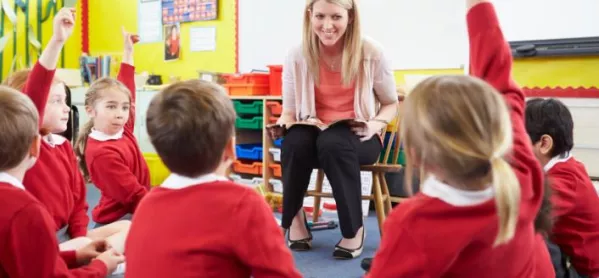Plans to include tests of how well children can persist with a task have been dropped from the baseline assessment following trials.
A document published today by the Standards and Testing Agency (STA) reveals that “self-regulation” will not be assessed by the tasks undertaken by 4- and 5-year-old children as part of the baseline assessments.
Instead, the baseline assessment will consist solely of mathematics tasks and literacy, communication and language tasks, while self-regulation will be included in a reformed early years foundation stage profile.
Quick Read: Three-quarters of primary heads label baseline 'unfair'
Quick Read: Schools invited to sign up for baseline pilot
Quick Read: DfE spends £10 million on baseline test
The baseline assessment, which will be piloted in September 2019, has provoked opposition from teaching unions and early years groups. Although headteacher unions have supported its introduction.
It has been developed by the National Foundation of Educational Research (NFER) and the STA.
The STA said that the self-regulation tasks were designed to assess three aspects: working memory, inhibitory control (the ability to ignore distractions) and attentional flexibility (the ability to shift attention).
The development of the assessment included trials in 300 schools and the STA reports that teachers taking part in the trial were “unsure of the purpose and value of the self-regulation tasks” and found that the self-regulation tasks took longer to administer than tasks measuring other skills.
It concludes: “The Department for Education has decided not to include self-regulation in the assessment to enable greater coverage and reliability of the other content areas in the time available. The assessment of self-regulation will form part of the reformed Early Years Foundation Stage Profile, which is an observational assessment more suited to this content area.”
The decision has disappointed early years experts. Beatrice Merrick, chief executive of professional association Early Education, said: “The DfE had initially taken on board feedback from the sector that tests of early language, literacy and numeracy at age 4 are less accurate predictors of children’s future outcomes than assessments of self-regulation.
"However, they are now announcing that they have dropped plans to assess children’s self-regulation as part of the baseline process.
"This shows the difficulty of constructing valid and meaningful tests of children at age 4 that have any real predictive value of children’s later outcomes.”
The framework for the assessment was also published today.
It reveals that:
- The baseline will take approximately 20 minutes per pupil, but can be paused and restarted where appropriate.
- The assessment consists of practical tasks using physical resources, and an online scoring system which the teacher will complete.
- The total number of marks available is 45 but the number of marks available to each pupil will vary as there will be different “routes” through the assessment. This is to prevent pupils from being presented with too many activities in which they are unlikely to be successful. Each pupil will have activities worth at least 26 marks.
- Pupils will be given tasks which involve answering by speaking, pointing and moving objects.
- The baseline will record a single score out of 45 for each pupil. This score will not be made available to schools, but recorded and used to create a progress measure for schools when those pupils reach the end of Year 6.
- There is no pass mark.
- It has been designed so that pupils with SEND can take part.




